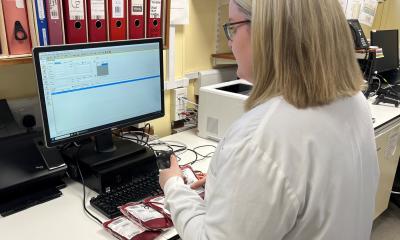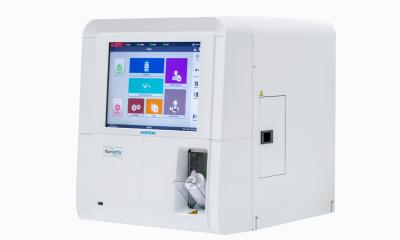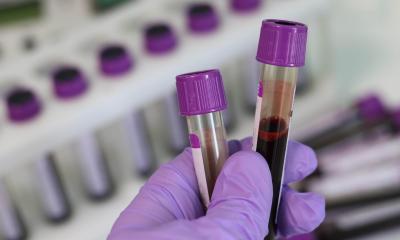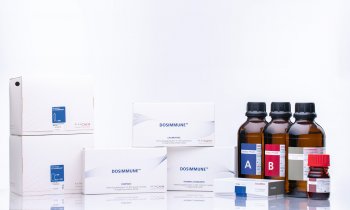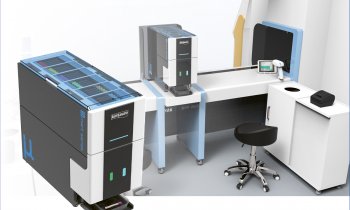
Source: University of Leicester
News • Two years earlier
Breast cancer: blood test could detecting relapse earlier
Research has revealed that a new blood test is able to detect disease relapse up to two years earlier than imaging in patients with early-stage breast cancer. The research, carried out by the University of Leicester and Imperial College London and funded by Cancer Research UK, showed that the blood test was able to detect 89 per cent of all relapses, on average 8.9 months quicker than imaging.
The prospective national study enrolled 49 patients with early-stage breast cancer from three NHS trusts in the UK (Imperial College Healthcare, The Christie Foundation and University Hospitals of Leicester) who had recently completed treatment with surgery and adjuvant chemotherapy. The study included a cross section of breast cancer subtypes, including HER2-positive, hormone receptor-positive, and triple-negative. Blood samples were collected every 6 months for up to 4 years from each patient, and results were correlated with radiographic and clinical outcomes.
Breast cancer is the second leading cause of cancer death in women. Approximately 55,000 women are diagnosed with invasive breast cancer every year in the United Kingdom, with 2 million cases estimated worldwide. While the overall survival rate for breast cancer has improved, relapse remains a problem, with five-year recurrence rates estimated to be as high as 30 per cent. Although this was an observational study, knowing that early detection of relapse could be possible presents the opportunity to conduct trials of treatments to prevent patients relapsing with symptomatic metastatic breast cancer.
Signatera, the blood test developed by genetic testing company Natera, uses a molecular residual disease (MRD) assessment to detect even trace amounts of the mutant DNA released from dying tumours, enabling such early detection of relapse.
Professor Jacqui Shaw, Professor of Translational Cancer Research at the University of Leicester, said: “Currently, there are no sensitive and specific clinical tests available to follow breast cancer patients after their primary treatment. “The results of this exciting study show that it is possible to monitor patients with a simple blood-based test, and this may provide a critical window of opportunity for earlier treatment than by other current tests.”
Professor Charles Coombes, Professor of Medical Oncology at Imperial College London, said: “Standard technologies for the detection of cancer recurrence have always been imprecise. With this innovative method of detecting minimal residual breast cancer, we now have the opportunity to conduct trials of treatments to prevent patients relapsing with symptomatic metastatic breast cancer.”
Dr David Crosby, head of early detection at Cancer Research UK, said: “The initial results of this study are encouraging. Monitoring when breast cancer returns in some patients is an important step in improving survival. Using circulating tumour DNA from a blood test is an emerging and promising method, although it requires further validation. I look forward to seeing the next steps of this research using a larger group of patients.”
Source: University of Leicester
18.04.2019



